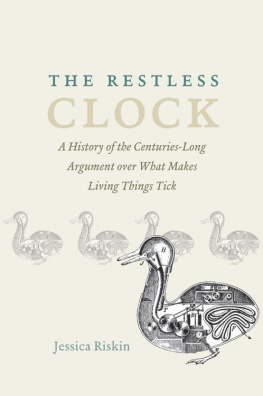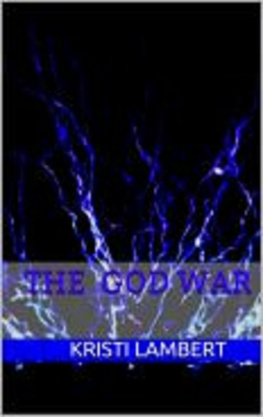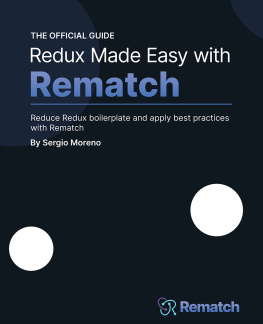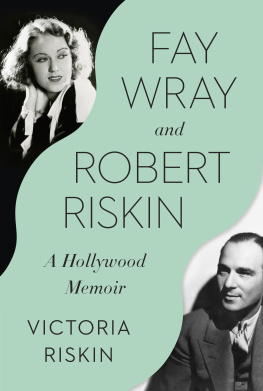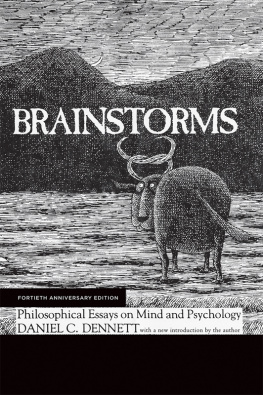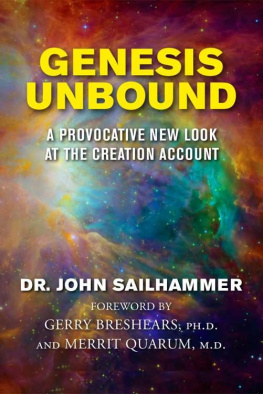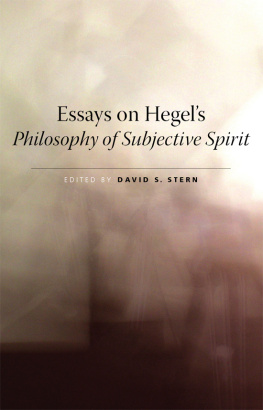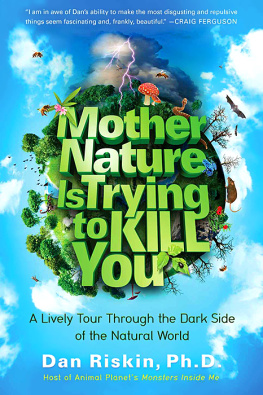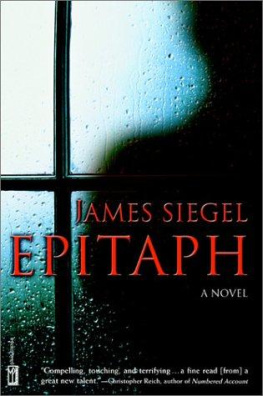For Madeleine, author of rare and fascinating creatures,
and for Oliver, researcher into life in all its forms
CONTRIBUTORS
DAVID BATES teaches intellectual history in the Department of Rhetoric at the University of California, Berkeley. He has published Enlightenment Aberrations: Error and Revolution in France and is now completing a book on the history of human insight from Descartes to Artificial Intelligence.
BERNADETTE BENSAUDE-VINCENT is professor of history and philosophy of science at the Universit de Paris X. Her research has focused on the history and philosophy of chemistry and on the public roles of natural science. Her current work examines ethical and philosophical issues surrounding research in nanotechnology and its applications. She is a member of the Acadmie des technologies and the Comit dthique du CNRS.
SYLVIA BERRYMAN is associate professor in the Department of Philosophy at the University of British Columbia. She studies ancient Greek natural philosophy and the reception of ancient science in philosophy. She is currently working on a book on the concept of mechanical explanation in ancient Greek natural philosophy.
JUSTINE CASSELL is a full professor in the Department of Communication Studies and the Department of Computer Science at Northwestern University, the director of the ArticuLab research group, and the graduate director of the interdisciplinary Technology and Social Behavior Ph.D. program. Her research focuses on better understanding everyday kinds of conversation and narrative as practiced by children and adults, and on building computational systems that simulate, mediate, and facilitate those everyday kinds of talk.
DENNIS DES CHENE is professor of philosophy at Washington University in St. Louis. He is the author of Physiologia, Lifes Form, and Spirits and Clocks, and is now preparing works on the passions in the seventeenth century and mathematics in the twentieth.
ANTHONY GRAFTON teaches European intellectual and cultural history at Princeton. His interests include the history of scholarship, the history of science, and the history of books and readers from antiquity to the present.
STEFAN HELMREICH is associate professor of anthropology at MIT. His research examines the work of biologists concerned with the conceptual and material limits of the category of life. His book Silicon Second Nature: Culturing Artificial Life in a Digital World is an ethnography of Artificial Life scientists at the Santa Fe Institute for the Sciences of Complexity. Helmreich is presently at work on a book about marine microbiologists who work in extreme environments such as deepsea vents.
EVELYN FOX KELLER received her Ph.D. in theoretical physics at Harvard University, worked for a number of years at the interface of physics and biology, and is now professor of history and philosophy of science in the Program in Science, Technology, and Society at MIT. She is the author of many articles and books, including A Feeling for the Organism:The Life and Work of Barbara McClintock; Reflections on Gender and Science; Secrets of Life, Secrets of Death: Essays on Language, Gender and Science; Refiguring Life: Metaphors of Twentieth-Century Biology; The Century of the Gene; and Making Sense of Life: Explain ing Biological Development with Models, Metaphors, and Machines. She is currently Chaire Blaise Pascal at Recherches Epistmologiques et Historiques sur les Sciences Exactes et les Institutions Scientifiques in Paris.
ELIZABETH KING isa sculptor interested in early clockwork automata, the history of the puppet, and literatures host of legends in which the artificial figure comes to life. Her sculpture is represented by Kent Gallery in New York, and she holds an appointment as School of the Arts research professor in the Department of Sculpture and Extended Media at Virginia Commonwealth University. She is the author of Attentions Loop (A Sculptors Reverie on the Coexistence of Substance and Spirit).
JOAN B. LANDES is the Walter L. and Helen Ferree Professor of Early Modern History and Womens Studies at the Pennsylvania State University. Her research engages questions of gender, political culture, and visual cognition in Old Regime and Revolutionary France. She is currently investigating eighteenth-century designs for artificial life. Her books include Monstrous Bodies/Political Monstrosities in Early Modern Europe; Visualizing the Nation: Gender, Representation, and Revolution in Eighteenth-Century France; and Women and the Public Sphere in the Age of the French Revolution.
TIMOTHY LENOIR is the Kimberly Jenkins Chair for New Technologies and Society at Duke University. He has published several books and articles on the history of biomedical science from the nineteenth century to the present. His more recent work has focused on the introduction of computers into biomedical research from the early 1960s to the present.
SCOTT MAISANO is assistant professor of English literature at the University of MassachusettsBoston, where he teaches courses on Shakespeare, the English Renaissance, early modern theater, and artificial life. His current project, Shakespeares Fourth Dimension: The Scientific Romances, positions the dramatists last plays alongside the works of his contemporaries Bacon, Brahe, Galileo, and Descartes in order to reserve a place for Shakespeare not only in the history of science but also in the history of cinematic science fiction.
WILLIAM R. NEWMAN is the Ruth Halls Professor in the History and Philosophy of Science Department at Indiana University. Much of Newmans work has focused on the multiple intersections between alchemy, art, technology, and natural philosophy. His most recent books are Atoms and Alchemy: Chymistry and the Experimental Origins of the Scientific Revolution; Promethean Ambitions: Alchemy and the Quest to Perfect Nature; George Starkey: Alchemical Laboratory Notebooks and Correspondence (with L. M. Principe); and Alchemy Tried in the Fire (with L. M. Principe).
JESSICA RISKIN is associate professor of history at Stanford University. Her research interests include Enlightenment science, politics and culture, and the history of scientific explanation. She is the author of Science in the Age of Sensibility: The Sentimental Empiricists of the French Enlightenment. She is writing a book about the history of the animal-machine from Descartes to Darwin.
ELLIOTT SOBER is the Hans Reichenbach Professor of Philosophy and William Vilas Research Professor at the University of WisconsinMadison. His interests in the philosophy of science include the use of probability and statistics in scientific reasoning and conceptual issues in evolutionary biology.
ADELHEID VOSKUHL is an assistant professor in the Department of the History of Science at Harvard University. She is working on a book about the intersection of automaton-making and sentimental bourgeois culture in late eighteenthcentury Switzerland and Germany as well as on the emergence of philosophies of technology among members of the Conservative Revolution in the Weimar Republic.
M. NORTON WISE is professor of history at the University of California, Los Angeles, where he also codirects the Center for Society and Genetics. His interests include the history of physics, technologies of knowledge, science and political economy, and landscape gardens. He is completing a book entitled Bourgeois Berlin and Laboratory Science.


